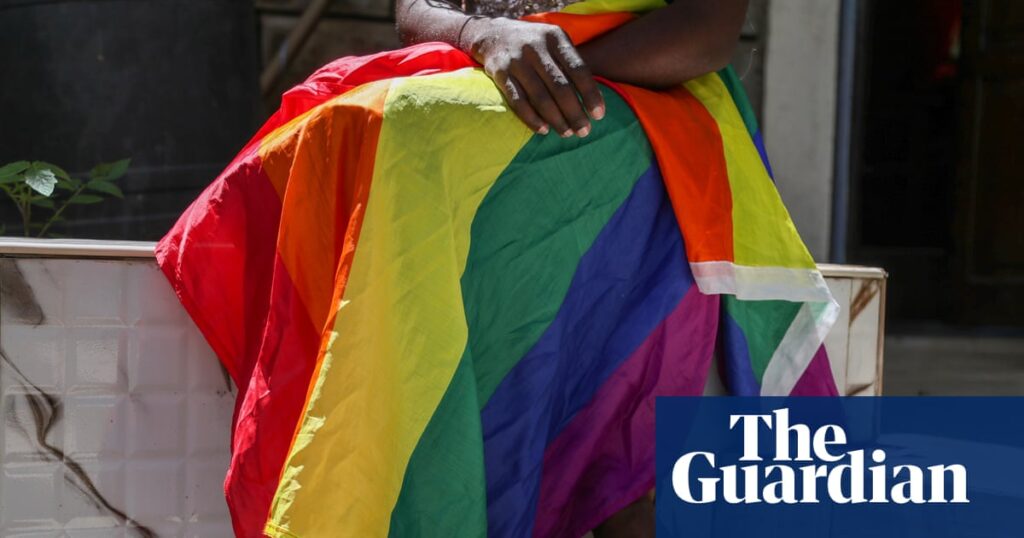“For my own safety I’ve become much more distrustful, I’ve shut myself off and try not to talk to certain people,” says Paul*, a young Burkinabé. “How will we go to health centres? Will doctors and nurses protect us? Or will they report us?”
On 1 September, Burkina Faso’s minister of justice and human rights, Edasso Rodrigue Bayala, announced an amendment to the Code of Persons and Family (CPF) which came into force in 1990, establishing for the first time a prison sentence of between two and five years and a fine for those who “promote homosexuality”.
The amendment is “a historic reform linked to a legal innovation, respect for cultural values and the will to build a Burkinabé family”, says Bayala. He says homosexuality will be detected in people who show “bizarre behaviour”.
First approved by the president, Ibrahim Traoré, in July 2024, it was unanimously passed by the transitional legislative assembly, which has replaced parliament since a coup d’état in September 2022.
The new law has sent shock waves through the country’s queer community.
“Talking too much could complicate life for those of us who live here,” says Jules*, a homosexual man living in Ouagadougou, the country’s capital. “It could harm us if suddenly our mutual support networks were cut off or if our meeting spaces were identified; we live hidden, but we live.”
Agathe*, a lesbian, says: “I’m very stressed about the situation and the safety of LGBTQ+ people.”
Until now, homosexuality did not appear in any legal document in Burkina Faso, which made the country a relatively safe space where gay people from across west Africa could live without fear of criminalisation or imprisonment.
The amendment – which also provides for the expulsion of any non-national found to be engaging in homosexual practices and states that “it will not be possible to adopt Burkinabé children without accepting the country’s rules” – is seen by many as part of a wider push across Africa to promote what are called “family values”, but which oppose abortion and LGBTQ+ rights.
Uganda passed its anti-homosexuality act, including the death penalty for “aggravated homosexuality” and life imprisonment for same-sex relationships, in May 2023. Mali also introduced anti-gay legislation last year, while Kenya is considering a “family protection” bill that would ban homosexuality.
after newsletter promotion
News of the ruling in Burkina Faso broke at 8pm on Monday, when maquis – popular street restaurants – were full of people. It spread quickly across social networks, WhatsApp groups and Facebook, one of the most widely used platforms in the country. There was shock and fear, but also hateful and discriminatory messages. “What’s the point of showing how we feel in the media if it makes us more vulnerable and accessible?” says Jules*. “Since yesterday I’ve only seen hateful comments on social media.”
Paul says: “I don’t know if someone is going to monitor us, if the population will revolt against us or persecute us – that’s what scares me the most. Luckily, my mother and sisters protect me.”
Since the coup, Burkinabé authorities have launched a programme focused on highlighting national sovereignty, local traditions, values and anti-colonial struggle. In January 2023, they expelled French soldiers from their territory and ended military cooperation agreements with the former colonial power. Traoré’s speeches have gone viral on social networks, and he enjoys strong popularity among young people.
But the new law has left many of the country’s youth despairing. “My wish is to leave the country. Here, it’s very complicated and we cannot live our lives as we want,” says Paul.
* All names have been changed to protect identities

